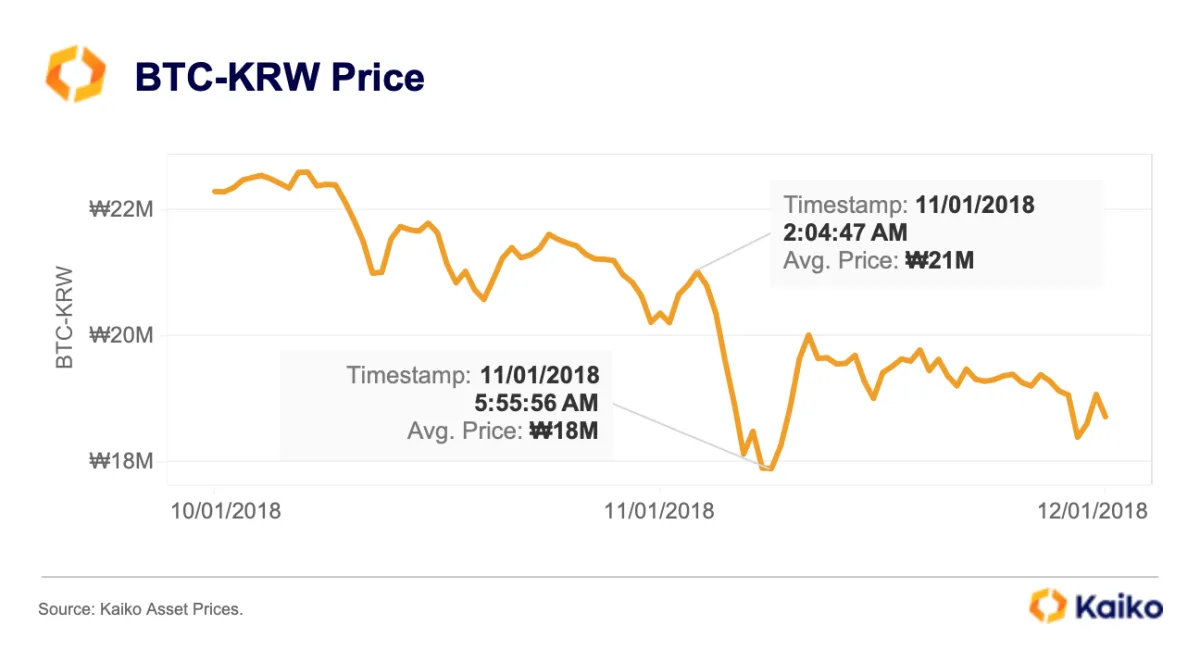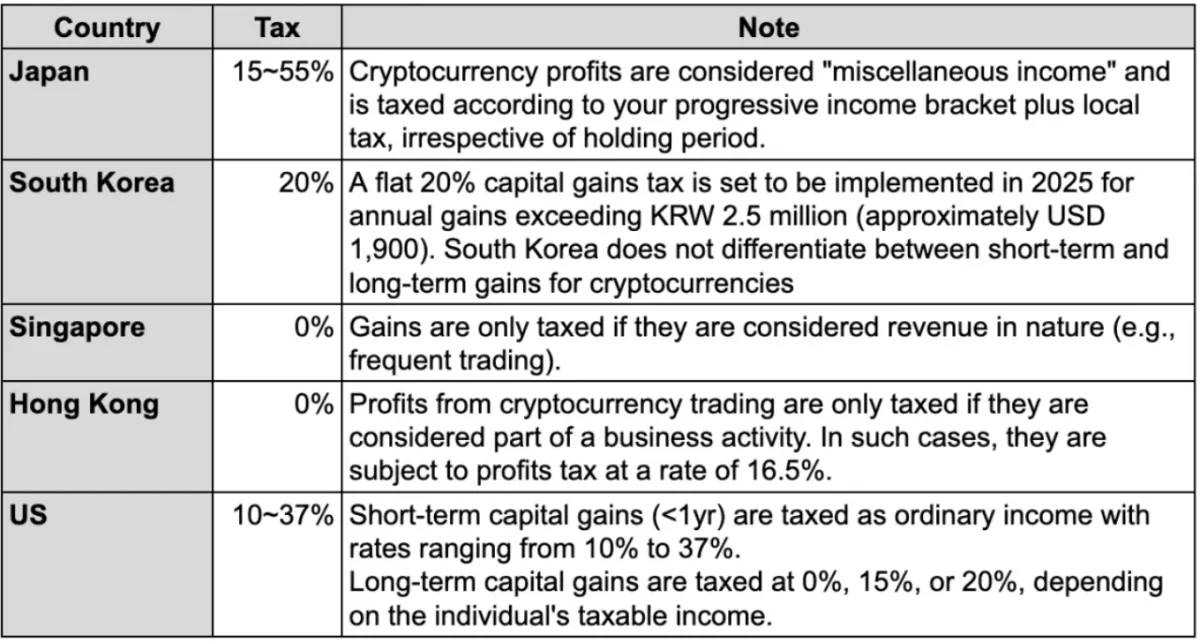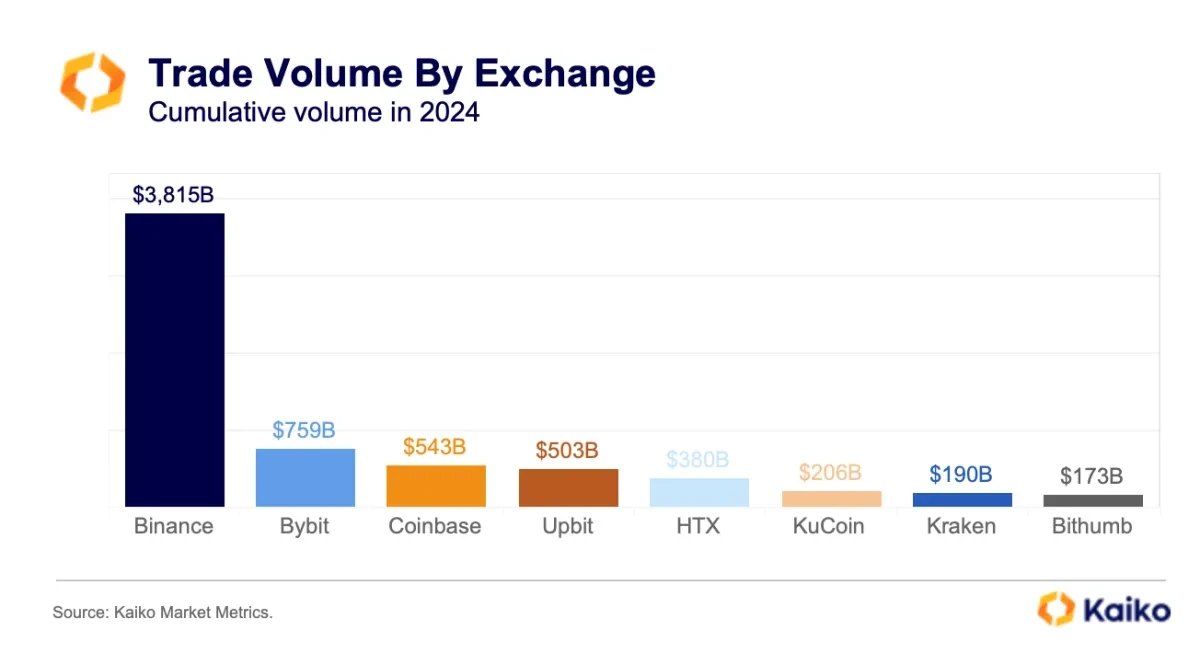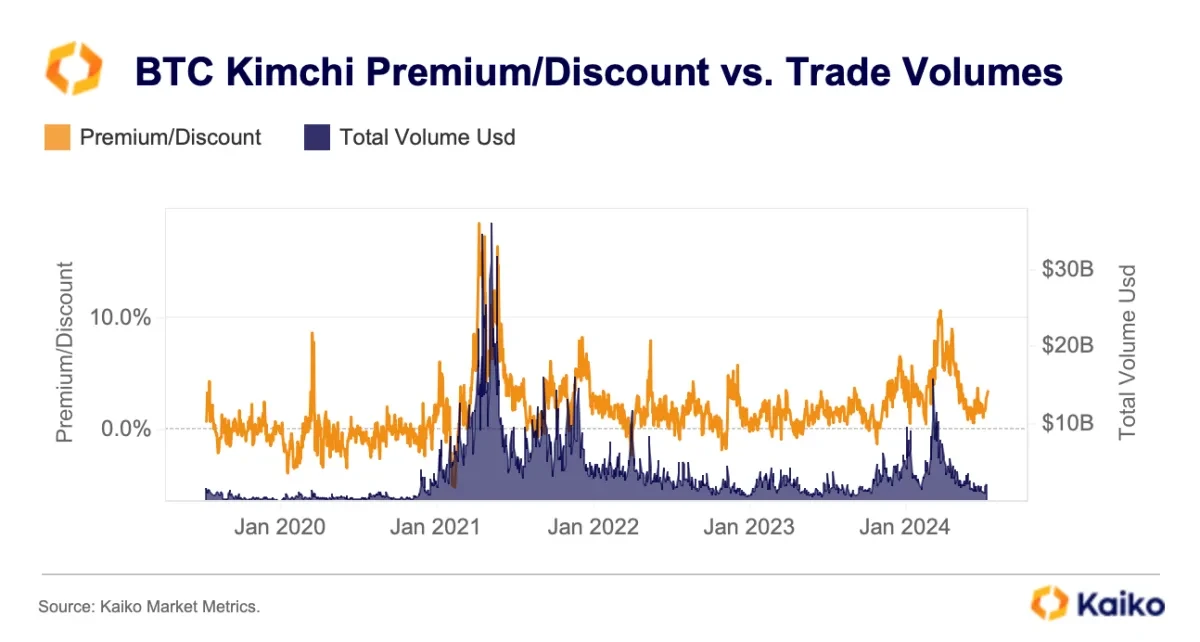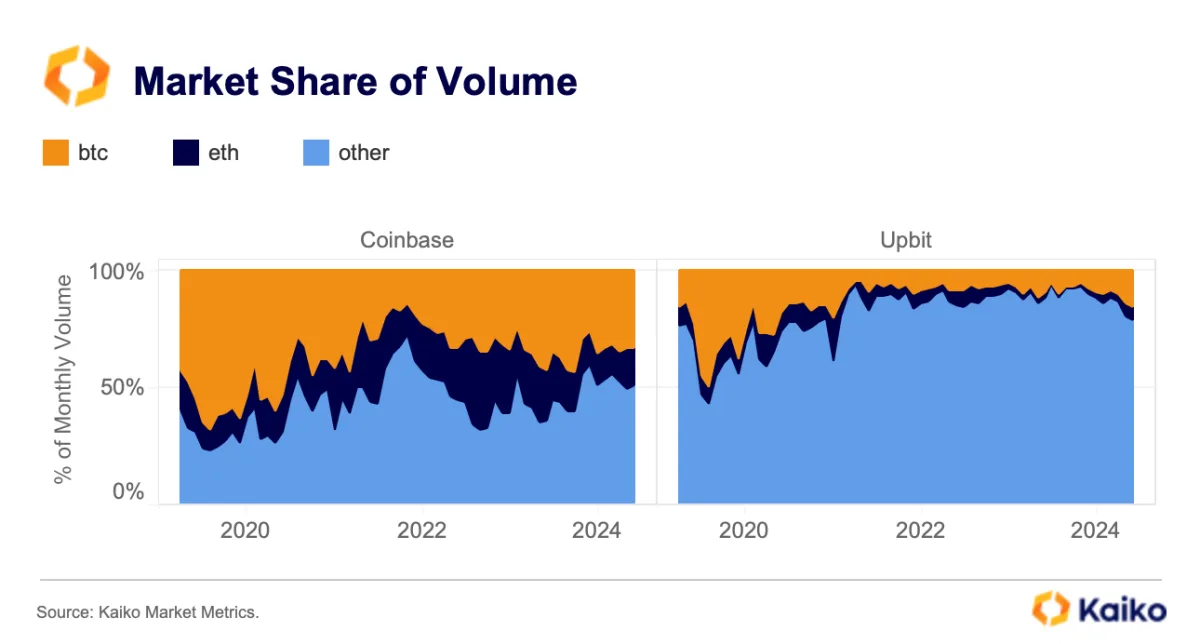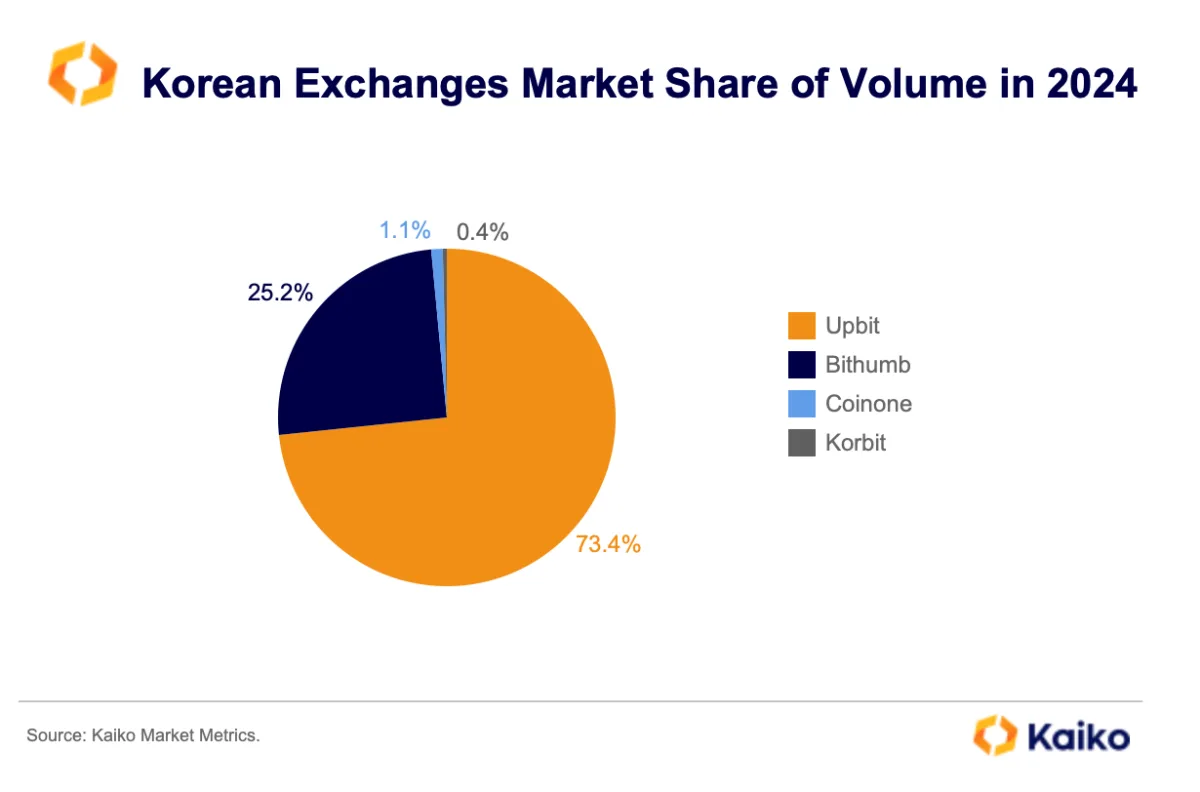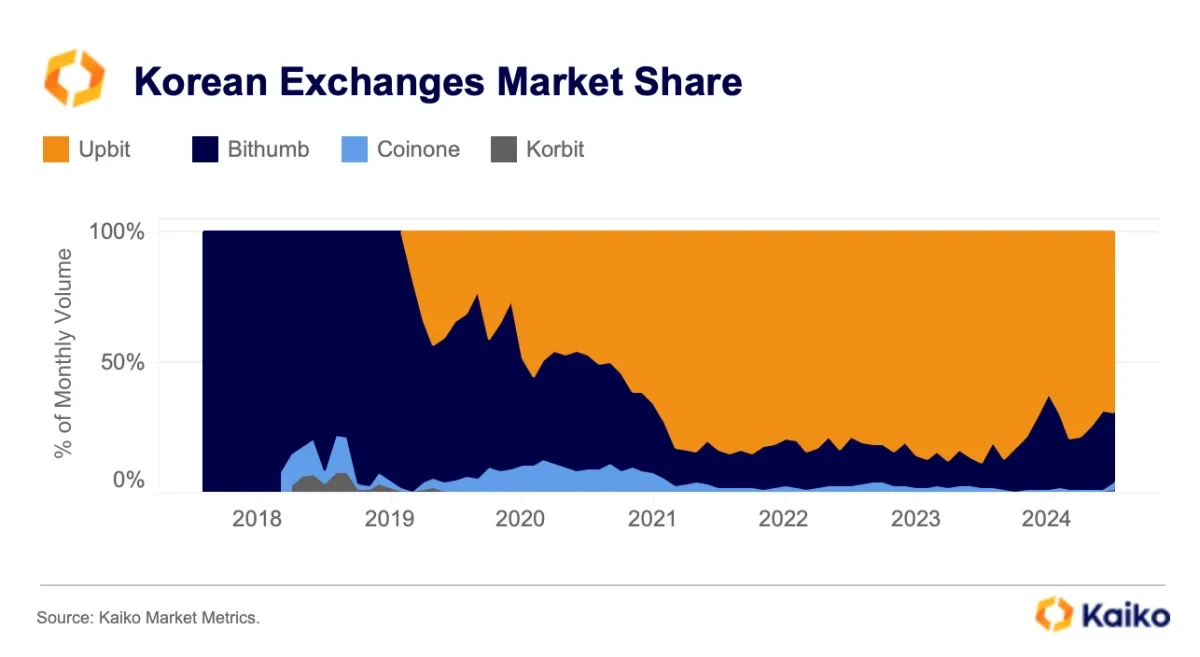Una mirada al mercado de criptomonedas coreano: inversores minoristas y lagunas regulatorias, entusiasmo y riesgos coexisten
Autor original: Min Jung
Traducción original: TechFlow
Resumen
-
Driven by a tech-savvy population, South Korea’s cryptocurrency market is characterized by fierce retail investment, with unique phenomena such as the “Kimchi premium” and “IPO pump” emerging.
-
South Korea’s cryptocurrency history is filled with important regulatory developments, primarily focused on improving market integrity and protecting investors.
-
However, despite the high volume and significant regulatory progress, the market remains challenging for developers due to public perception of cryptocurrencies and the lack of relevant regulation.
Figure 1: The Korean won has always been ranked in the top two in global fiat currency trading volume
Introducción
As a technological powerhouse, South Korea holds a prominent position in the global cryptocurrency space with widespread internet access and a tech-savvy population. South Korea’s retail investors are very active, leading to unique market phenomena such as the “Kimchi Premium” and “IPO Pump-Up,” reflecting its citizens’ enthusiasm for cryptocurrency investments. However, these behaviors have also attracted the attention of regulators and market observers, prompting the introduction of new regulations that are expected to have an impact on the global cryptocurrency market.
In this research article, we will (1) review the history of cryptocurrency in South Korea, (2) explore the current state of the industry, especially the aforementioned phenomena and new regulations, and (3) introduce some of the major players in the domestic market.
The History of Cryptocurrency in South Korea
~ 2017:
-
Prior to 2017, cryptocurrencies were not widely used in South Korea, in line with global trends. Some notable events include Korbit becoming the first cryptocurrency exchange in South Korea in 2013, followed by Bithumb in 2014.
2017:
-
Bull Run : 2017 marked the beginning of South Korea’s cryptocurrency craze. The bull run attracted millions of retail investors, with Bithumb often ranking first in global daily trading volume and the “Kimchi Premium” (discussed in detail later) reaching 30-40%.
-
ICO Ban: In September 2017, South Korea’s Financial Services Commission (FSC) announced a ban on all forms of initial coin offerings (ICOs) to protect investors and prevent potential financial scams and speculation. To this day, platforms like CoinList remain banned in South Korea.
-
2018:
-
“Park Sang-gi Crisis” : In January 2018, Law Minister Park Sang-gi announced that the government was considering shutting down all cryptocurrency exchanges, triggering significant market turmoil and a sharp drop in the price of Bitcoin.
Figure 2: BTC price dropped significantly after his comments
-
Real-name trading system : On January 30, 2018, South Korea implemented the Real-name Trading System, requiring all cryptocurrency exchanges to cooperate with banks and provide real-name verified accounts for trading. This move is intended to increase transaction transparency and prevent money laundering.
2020/2021
-
Amendment to the Specified Financial Information Act : In March 2020, the South Korean National Assembly passed an amendment to the Specified Financial Transaction Information Reporting and Use Act (Special Financial Act) to bring cryptocurrency exchanges under regulatory jurisdiction. The amendment requires all virtual asset service providers (VASPs) to register with the Financial Services Commission (FSC) and comply with anti-money laundering (AML) and know your customer (KYC) regulations. This law will take effect from March 2021.
-
After the law came into effect, only 29 of the 63 exchanges were successfully registered. Of these, only five exchanges (Upbit, Bithumb, Coinone, Korbit, and later Gopax) obtained Information Security Management System (ISMS) certification and real-name accounts, and only they were allowed to operate the Korean won market.
-
The law also applies to foreign exchanges, forcing companies like Binance to shut down Korean language support and P2P services. As of now, the following three principles apply: no support for the Korean won, no Korean language services, and no direct marketing to Korea.
2022
-
Terra Luna Collapse: In May 2022, the collapse of Terra (LUNA) and its stablecoin UST triggered major turmoil in the global cryptocurrency market. This event had a profound impact on the psychology of the entire market, especially Korean investors. It also raised widespread concerns about stablecoin stability and regulatory oversight. Due to Terras close ties to South Korea, especially through its founder Do Kwon and its ecosystem, this collapse had a significant impact on the Korean cryptocurrency market.
Figure 3: Terra ecosystem collapse
-
DAXA : The Digital Asset Exchange Alliance (DAXA) is formed by major Korean exchanges (Upbit, Bithumb, Coinone, Korbit and Gopax) to strengthen cooperation and establish industry standards to better protect investors and maintain market integrity.
-
Travel Rule : Following guidance from the Financial Action Task Force (FATF), South Korea introduced the “Travel Rule” to enhance transparency in cryptocurrency transactions and combat illegal activities.
2023/2024
-
Haru Invest/Delio bankruptcy : In 2023, two cryptocurrency digital asset managers went bankrupt due to alleged Ponzi scheme structures. This event exacerbated negative market sentiment after the Luna collapse, highlighting regulatory gaps and investor protection issues, and was accompanied by allegations of mismanagement and financial irregularities.
-
Guidelines for Security Token Offerings (STOs) : In February 2023, the Financial Services Commission announced guidelines for the regulation of security tokens under the Capital Markets Act. The guidelines focus on determining whether a token meets the criteria for securities and the regulations governing the issuance and distribution of tokenized securities.
-
Virtual Asset User Protection Law : The Virtual Asset User Protection Law, passed in June 2023, aims to protect investors by imposing penalties for price manipulation and other market abuses. It is the first phase of a comprehensive bill that will provide a comprehensive regulatory framework for digital assets.
2024 and beyond
-
Virtual Asset User Protection Law : The aforementioned Virtual Asset User Protection Law will be implemented on July 19, 2024. While this phase focuses on user protection and preventing abuse of transactions, the second phase is likely to focus on market access and operations of virtual asset service providers. However, discussions on the second phase have not yet begun, and considering that the first phase took 20 months to pass, it is expected to take longer to see the specific content and timeline.
-
Cryptocurrency Tax : Cryptocurrency taxation has been a key issue in South Korea during the election season. The implementation of cryptocurrency taxation has been repeatedly delayed since 2022 as part of the government’s efforts to woo voters ahead of the general election. As of now, a 20% capital gains tax on annual earnings of more than 2.5 million won (about $1,900) is scheduled to begin in 2025.
Figure 4: Cryptocurrency taxes by country
Virtual Asset User Protection Act
As listing on a Korean exchange has become an important milestone for many crypto projects, the guidelines and regulations regarding the listing process have received much attention. Currently, there are no clear regulations on the listing and delisting of cryptocurrencies on Korean exchanges. The only existing guidelines come from DAXA, a consortium of the five largest Korean exchanges, which provided an initial listing framework in March 2023. However, this guidance has been criticized for its lack of clarity, so DAXA is re-drafting the guidelines by adding details under the supervision of regulators. These new guidelines will be implemented under the Virtual Asset User Protection Act, and it is expected to be an important development in the Korean regulatory field that deserves everyones attention.
Virtual Asset User Protection Act (가상자산이용자보호법)
The Virtual Asset User Protection Law will take effect on July 19, 2024, and will focus on investor activities on exchanges, including:
-
Protecting customer deposits
-
Increased custodial responsibility
-
Monitor suspicious transactions
-
Preventing insider trading
Listing/Delisting Guide
Under the supervision of the Financial Services Commission (FSC)/Financial Supervisory Service (FSS), DAXA plans to launch Compliance Best Practices when the Virtual Asset User Protection Act is implemented. These guidelines include listing and delisting standards and are currently accepting industry feedback. The listing review standards include nine requirements, divided into four main areas, and are reviewed every quarter:
1. The credibility of the issuer
-
Failure to disclose material information related to virtual assets, or repeated arbitrary changes without justifiable reasons.
-
Failed to verify issuer and operator primary wallet information.
2. User protection measures
-
Failure to verify important explanatory materials (white papers) related to virtual assets prepared by issuers and operators.
-
Lack of on-chain transaction monitoring tools (block explorers).
3. Technical security
-
An unexplained or unresolved security incident occurs in a virtual asset, wallet, or distributed ledger.
-
Failure to verify the token smart contract source code in the distributed ledger, or improper setup of key event functions.
4. Compliance
-
Self-issued coins, dark coins, and other virtual assets that are considered illegal.
-
Supporting transactions in virtual assets that could be used for illegal activities or violate existing regulations.
Virtual assets that are related to any of the above eight items are considered non-compliant and should not be listed. In addition, the financial authorities have introduced a ninth qualitative review criterion, including the following:
-
The capabilities, social reputation and past business history of the entity related to issuance, operation and development.
-
Disclose important information related to virtual assets.
-
Total circulation and distribution plans, changes in business plans and their transparency and rationality.
-
The appropriateness of access control settings for important event-related functions of the token smart contract.
These evolving guidelines aim to provide a structured and secure environment for cryptocurrency trading in South Korea, addressing current ambiguity and enhancing market integrity.
Where are we now?
Retail investor frenzy
South Korea’s retail enthusiasm can be attributed to cultural factors such as widespread technology adoption due to fast internet speeds, a risk-prone culture, and the rapid spread of trends in a monoethnic society. As a result, South Korea has been one of the largest markets in the crypto space since 2017, and its exchanges have become important platforms for projects to list. Even today, Upbit is consistently ranked in the top five in average trading volume, usually second only to Binance. This is particularly surprising because Korean exchanges are limited to Korean residents, unlike exchanges such as Binance, Coinbase, and HTX that cater to a wider audience.
Figure 5: Upbit ranks second in average trading volume
Kimchi premium and listing price increase
Recently, cryptocurrency trading volume in South Korea has surpassed that of KOSDAQ and KOSPI. This phenomenon shows that cryptocurrency has been deeply embedded in the financial system of South Korea. Such strong interest has also triggered some interesting market phenomena: kimchi premium and listing pull.
Kimchi Premium
The Kimchi premium refers to the difference in cryptocurrency prices between South Korean exchanges and global exchanges. Due to regulatory barriers that make arbitrage difficult, there is usually a 2-3% premium, meaning that cryptocurrency prices are higher on South Korean exchanges. However, during particularly bullish periods, such as in April, this premium can soar to around 14%.
Figure 6: Kimchi premiums surge during high volume bull markets
Listing pull up
Another interesting phenomenon is the listing pump. When Upbit or Bithumb announce that a project will be listed, the price of the newly listed cryptocurrency will immediately surge. This phenomenon is influenced by factors such as market capitalization, liquidity, and perpetual contract availability. Although listing on a Korean exchange does help enhance liquidity and is generally seen as positive news, the price pump caused by this is usually short-lived and tends to be a one-off event rather than a sustainable trend.
Figure 7: Activo prices rose after Upbit’s listing announcement
However…
Despite progress in regulating exchanges and protecting investors, South Koreas Web3 operations and developer environment face huge challenges. Currently, there are no notable Korean local projects in the top 100 market cap, which is surprising given the popularity of crypto assets in South Korea. The main obstacles appear to be public attitudes toward cryptocurrencies and regulatory uncertainty surrounding Web3 projects.
While cryptocurrency is popular in South Korea, it is viewed more as a form of gambling than a long-term investment in Web3 technology. Short-term behavior in the market, such as listing/delisting pumps (e.g., price spikes around delisting announcements), reinforces this perception. As a result, the markets focus remains on short-term speculation rather than long-term investments based on Web3 fundamentals. Additionally, the collapse of LUNA in May 2022 exacerbated negative public sentiment toward cryptocurrencies, leading to intense media scrutiny of all crypto projects operating in South Korea. These projects have also become targets of politicians, creating an environment in South Korea where sustainable growth is difficult to achieve despite real enthusiasm.
Figure 8: Koreans prefer altcoins over mainstream coins
Factors that increase complexity
Unclear regulations also play a role. While government officials are actively developing a regulatory framework, existing regulations focus primarily on investor protection and less on supporting innovation and industry development. For example, the Virtual Asset Service Provider (VASP) license requirement only applies to exchanges, wallets, and custodians, while the initial phase of the Virtual Asset User Protection Act focuses primarily on the operational aspects of exchanges. In addition, South Korea’s ban on P2E (Play-to-Earn) games has led to a complex situation where the world’s top Web2 gaming companies set up operations in South Korea to access local talent, but their services are aimed at overseas markets. This regulatory ambiguity and delays have forced many South Korean developers to relocate their operations to more favorable jurisdictions such as Singapore, stifling local innovation despite South Korea’s strong technological capabilities.
Major players in the South Korean crypto market
Intercambios
Although there are no clear regulations, futures trading of cryptocurrencies is not allowed in principle in South Korea due to restrictions by the Financial Services Commission (FSC). As a result, the cryptocurrency market in South Korea is dominated by five major spot exchanges: Upbit, Bithumb, Coinone, Korbit, and Gopax. These exchanges have a significant market share, with Upbit and Bithumb accounting for nearly 96% of the total trading volume.
Figure 9: Market share of Korean exchanges as of today
-
Upbit : Owned by Dunamu, Upbit is the undisputed number one cryptocurrency exchange in South Korea. Dunamu also operates Luniverse (a Web3 product), a stock trading platform, and even a second-hand watch trading platform. Currently valued at around $2.5 billion in the OTC market, Dunamu has sales of $2.7 billion in 2023. Today, Upbit offers KRW/BTC/USDT trading pairs, with the majority of volume coming from the KRW market.
-
Bithumb : Although Bithumb’s governance structure has been unclear, the exchange is currently valued at approximately $289 million in the OTC market and has announced plans to IPO in 2025. Bithumb was the market leader until 2020, but then lost a significant amount of market share to Upbit. Nevertheless, through an aggressive fee policy, Bithumb has recently regained market share and continues to play an important role in the “listing pump” phenomenon.
Figure 10: Korean exchange market share history shows Bithumb held the top position before 2020
-
Coinone : Coinone has a market share of 1.1% and is the first Korean exchange to list Ethereum.
-
Gopax : Binance acquired a 72.26% majority stake in Gopax as a strategic move to penetrate the Korean market. However, the process is still awaiting government approval due to regulatory uncertainties.
-
Korbit : With a market share of 0.4%, Korbit is the oldest cryptocurrency exchange in South Korea.
proyecto
i) Kaia
Kaia is a new generation blockchain project formed by the merger of Klaytn and Finschia, jointly promoted by Korean tech giants Kakao (Klaytn side) and Navers Line (Finschia side). The merger aims to integrate the two blockchain platforms into a unified system, named Kaia, derived from the Greek word for and, symbolizing connection. It is scheduled to be launched before the end of this year and is expected to become an important Korean layer-1 blockchain. This merger is also one of the few MA cases in the crypto industry.
1. Who are you and what is Kaia?
I’m John Cho, VP of Marketing at the Klaytn Foundation, currently leading our global go-to-market efforts and expanding channels in key regions. Kaia is the new layer-1 superchain launched as a result of the merger of the Klaytn and Finschia chains. As third-generation blockchain projects founded by Kakao (the dominant messaging app in South Korea) and Line (the dominant messaging platform in Asia with 178 million users), the merger of their ecosystems was a natural progression, facilitating the creation of one of the largest blockchains in Asia. With Finschia’s expertise in application development and Klaytn’s unparalleled technical prowess, Kaia is poised to not only be a catalyst for true mainstream adoption of Web3, but also a gateway to a major user base, liquidity, and talent in Asia.
2. What do you think of the current regulatory status of Web3 operations in South Korea, and what changes do you think are needed to promote innovation in this area?
South Korea’s regulatory environment continues to lag behind continued innovation in the Web3 space. While South Korea has the largest cryptocurrency spot trading volume in the world, indicating a huge public demand for blockchain technology, legislators have not yet been able to provide the clear guidance needed by local teams and developers, resulting in a loss of talent and brainpower, with many teams leaving for regions with clearer guidance. The main bottlenecks currently are regulators’ lack of understanding of Web3 technologies and trends, as well as a lack of dialogue with actual developers and teams. To foster innovation and substantial growth in South Korea, developers need clarity; currently, guidelines are vague and enforcement lacks consistency. For our industry, regulatory clarity and specificity can allow for clearer strategies and goals.
3. Can you tell us about some upcoming updates we can expect from Kaia?
The official launch of Kaia Mainnet is just around the corner, and in addition to new technical upgrades and additional features such as native staking delegation and priority fee mechanism, we also plan to launch an ecosystem-wide incentive points system through Kaia Portal. Kaia Portal will be our proprietary service discovery and user frontend, allowing users to earn points while leveraging exclusive benefits and participating in on-chain tasks. Through Kaia Portal, our goal is to incentivize user-level contributions to promote growth and initiate liquidity. Portal will be launched together with the new Kaia Mainnet.
ii) Delabs
South Korea has been a leader in Web2 gaming, with major companies such as Nexon, Netmarble, NCSOFT, and Krafton dominating the global market. As a result, many people from these major game studios, and even entire studios, are trying to enter the Web3 space, such as Wemade and Nexon. Part of this trend is Delabs Games, a South Korean game studio and a subsidiary of 4:33 Games. Founded by former Nexon head Joon Mo Kwon, Delabs Games is flexing its muscles in the Web3 space.
1. Who are you and what is Delabs Games?
I’m Hyunmyung Kim, the Marketing Director of Delabs Games. Delabs Games is a South Korean game studio and a subsidiary of the well-known 4:33 Games. We have over 13 years of experience in mobile game development and have created many popular games in Korea and abroad. Initially focusing on the Korean market, 4:33 Games later expanded to a global audience. Now, Delabs Games is pioneering the next chapter of gaming by adopting blockchain technology. Over the past two years, Delabs Games has been developing three blockchain games: casual racing game Rumble Racing Star, space refugee survival game Space Frontier, and Web3 character collection RPG Metabolts. In February 2024, we launched our first racing game Rumble Racing Star, which was well received and reached 10,000 daily active users within five days of its launch.
2. Why do you think South Korea stands out in the crypto space?
South Korea’s prominence in the global crypto space can be attributed to several key factors. Economic pressures, including high inflation and housing costs, have prompted many, especially the so-called “N-Po generation,” to turn to high-risk investments in search of a financial breakthrough, making Web3 an attractive option. Despite being the 13th largest economy in the world, South Korea has significant cryptocurrency purchasing power, with Upbit as a major exchange ranking among the top in global trading volume. Additionally, the country’s emphasis on local digital solutions is also reflected in successful blockchain projects such as Klaytn and WeMade, highlighting South Korea’s technological innovation and huge influence in the global Web3 market.
3. What do you think of the current regulation of Play-to-Earn (P2E) games in South Korea, and how should it be changed?
South Korea’s cautious Financial Services Commission (FSC) regulations restrict P2E gaming, NFTs, and cryptocurrencies, potentially inhibiting industry growth. NFT taxation and its classification as virtual assets remain under discussion until the Virtual Asset User Protection Act is introduced in July 2024. Similar to Japan, establishing a secure perimeter for P2E services is critical. A centralized control tower is urgently needed to coordinate regulation across ministries amid the rapid development of blockchain technology. This initiative is critical to ensure effective management and regulation of these evolving technologies.
4. Can you tell us about some upcoming updates we can expect from Delabs?
Delabs Games is moving towards TGE (Token Generation Event) and launching our ecosystem under our core concept Playable Layer. To showcase the core user experience of the Playable Layer, we are hosting an event called Ladybugs Journey. This is a points-based incentive program where users can collect and upgrade points by completing various tasks, collecting on-chain assets, and climbing competitive leaderboards. Delabs Games will launch a variety of games, from hardcore AAA games to casual games on Telegram to increase accessibility.
Conclusión
South Korea’s cryptocurrency market presents a complex landscape of strong general user investment and regulatory challenges. While South Korea has a highly technologically savvy population, the lack of local blockchain projects reflects regulatory and public perception barriers. The upcoming Virtual Asset User Protection Act is a step toward addressing these issues, aiming to improve market integrity and provide clearer operational guidelines. However, to truly leverage its technological strengths and market enthusiasm, South Korea needs to foster an environment that supports blockchain innovation, overcome negative public sentiment, and ensure a balanced regulatory framework that encourages long-term investment in Web3 projects for sustainable development. Only through this balanced approach can South Korea establish itself as a global leader in the evolving cryptocurrency space.
This article is sourced from the internet: Insight into the Korean crypto market: retail investors and regulatory gaps, enthusiasm and risks coexist
Original author | Arthur Hayes Compiled by Nan Zhi ( @Assassin_Malvo ) Some people would say: “The crypto bull run is over.” “I need to issue my token now because we are in the downside of the bull run.” “Why hasn’t Bitcoin risen like the big US tech companies in the Nasdaq 100?” This chart of the Nasdaq 100 (white) versus Bitcoin (gold) shows that the two assets have moved in tandem, but Bitcoin’s gains have stalled since hitting an all-time high earlier this year. However, the same people make the following point: “The world is shifting from a unipolar world order dominated by the United States to a multipolar world order that includes leaders such as China, Brazil, and Russia.” “To finance government deficits, savers must be financially repressed…

